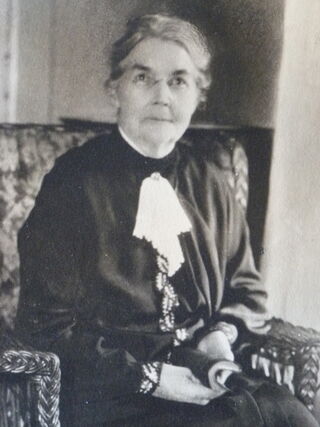Gratitude
Compassion for Our Elders
Assisting relatives in their last years can be a joyful experience.
Posted November 30, 2014

Some years ago, when my mother was living in a nursing home not far from me, I suggested to a man I had been seeing for a few months that he might like to come with me to the nursing home one day to meet her.
His reply was swift and mind-boggling. He refused instantly, adding, “I’m a total coward about anything having to do with life.”
Not surprisingly, our alliance ended soon after this conversation, but his remark has stayed with me all these years.
When my mother’s Parkinson’s disease confined her to a nursing home, I moved nearby from out of state to help take care of her. I visited her nearly every weekend for the six and a half years she lived there; I did her laundry and kept her supplied with chocolate bars, lipstick and other sundries.
When my mother was still well enough to leave the nursing home by car, my brother and I shared the duties of taking her to doctor’s appointments and on other excursions. The nursing home became a kind of second home for me, and the nurses, care aides and other staff members like a second family.
My weekly visits taught me so much about my mother: Her courage and determination in the face of the relentless progression of her disease, her quick wit that made her a favorite of the nurses and care aides, her increasing vulnerability and her occasional black moods. “How was your day?” I asked her in a phone call between visits, a few months before she died. “Pointless,” she replied, with a finality of tone that made my attempt to cheer her up seem like an insult to her keen intelligence.
During these years of visiting her, I also learned a great deal about myself. Before I moved back home to help my mother, I had been a journalist; my goal had been to save the world through observation and writing. When I gave up journalism to focus on my mother, I gradually adjusted my goals. Instead of saving the world, I concentrated on trying to make my mother’s life better, in whatever small ways I could.
I also cultivated a quality that had been in short supply in my life until those years: patience. I decided to quit my job and move back home in part because my mother’s doctor had told my brother that, given the progression of her Parkinson’s disease, he anticipated my mother had perhaps six months to live. As it turned out, the doctor’s forecast was not even close to accurate. My mother, who was then 83, lived for nearly seven years after that conversation.
As my caregiver role stretched from months to years, I found myself in despair on more than one occasion. I was supremely grateful that my mother was still alive and cognizant; she was great company on my weekly visits. In all but the worst weather, we would go out for “walks” together, with me pushing my mother in her wheelchair around the nursing home grounds or on the sidewalks of the verdant municipal park next to the nursing home. We commented on the birds swooping among the branches of the trees or the colors of the leaves in spring, summer and fall.
But as we watched the seasons change year after year, I sometimes wondered how much of my own life was seeping away as I focused my attention on my mother. From time to time as I washed my hands at the sink in her nursing home room, I would catch myself looking in the mirror over the sink to see how much I had aged since I had last checked my face in that same mirror.
I never shared my conflicted feelings with my mother. How could I? But still she knew. One summer afternoon perhaps three months before she died, we were having a mother-daughter dinner in one of the private lounges at the nursing home. My mother could still eat solid food, but her Parkinson’s disease had made it hard for her to hold the utensils. So I fed her—a process so slow that it tested all the reserves of patience I had built up over the past six years.
I would cut up the food in small portions, and then put what seemed like a bird’s mouthful on the fork and bring it to her lips. She would take the food from the fork and chew it ever so slowly before finally swallowing it. Time seemed to stop during these meals, but I knew that—no matter how much it seemed as if it might be midnight before she finished eating—I could not under any circumstances show any impatience or desire to hurry her along. “Honor thy mother” was the commandment I lived by in those days, and expressing it took many forms, including this radical adjustment in the normal time allotted for meals.
On this afternoon, between bites, my mother suddenly said, in a voice full of sadness, “I wish you didn’t have to do this.” My heart nearly stopped at those words; I feared that she must have sensed my impatience, even though I had done everything in my power to conceal it.
As quickly as I could, I said, gently and kindly, “Why? You did this for me.” I didn’t say it, but we both knew I was referring to her care of me when I was a baby. In my mind, I pictured my small self in a high chair receiving Gerber’s baby food on a tiny spoon that my beautiful thirty-something mother was guiding toward my mouth.
In a swift retort, my mother said, “But that was fun.”
I had to keep the mood light; I had to let her know that helping her now was a labor of love. Like a tennis player easily batting a ball back across a net, I said, “Well, this is fun, too.”
My mother’s death a few months later left me feeling strangely disoriented—and not just from the grief of losing her, although that was powerful and profound. In some real way, I also felt as if I had lost a job—one that I had been doing for six and a half years and that in its own way had been deeply satisfying.
As a journalist, I might have thought I was helping to save the world with my stories, but I could never be certain I was having any real effect. When I brought my mother an armful of freshly washed and ironed tops and skirts or took her for a walk in the cool spring air, however, I could immediately see the small but significant difference I was making in her life. I could not restore her health or her youth, but I could reassure her that she was not forgotten and that I was there to lend a hand.
Given the satisfaction I derived from helping my mother in her last years, it did not surprise me that I felt called to serve again when her younger sister fell and broke a bone in her hip in early September.
My aunt, who is 92, lived alone and had never married. Her closest living relatives are her nieces and nephews: my brother and I and my two older cousins—the grown son and daughter of my mother’s older sister, who died in her fifties. When my aunt fell, all of us were living about 100 miles away from her, so we formed a kind of committee of cousins to oversee her care via email, phone calls and periodic visits. Because my schedule is the most flexible, in the first weeks after her fall I took the lead in visiting her.
My aunt’s path has been eerily similar to the one my mother followed 12 years ago: My mother's road to a nursing home began with a fall and a broken hip, too. In the recent visits I have made to my aunt, I have been surprised to discover how familiar the surroundings are. It has been like returning to a country I traveled to years ago and finding that I remembered both the language and the landmarks.
In the hospital I knew the questions to ask the nurses and the doctors and the words to say to my aunt to calm her before her hip surgery. In the rehab center I got progress reports from her physical therapy aide and her speech and occupational therapists. On a warm day in late October, I joyfully pushed my aunt outside in her wheelchair to examine the grounds of the rehab center—the first time my aunt had been outdoors since her fall seven weeks before.
That day was a first for me, too: It was the first time I had pushed an elderly relative in a wheelchair since my mother died. The sorrow I felt that my passenger was not my mother was tempered by happiness at being able to give my aunt this unexpected treat.
On her first day in the nursing home, I arrived moments after my aunt did to reassure her about her new home. Since she had come from the rehab center with just one pair of socks, I returned the next day with four new pairs and surprised us both by the zeal with which I used a black Sharpie to print her last name in large block letters on the toe of each sock, so they would not be lost in the nursing home laundry.
My role in my aunt’s last years of life will not be as all-encompassing as the role I played in the last years of my mother’s life. She is my aunt, for one thing, and even in her new home she is still nearly 90 miles away from me. My cousins chose this nursing home because it is much closer to them, and they will have more of a hand in her care from now on than I will. But I have treasured the recent visits I have made to my aunt, and I am looking forward to my next trip.

In spite of my enthusiasm for spending time with elderly relatives, however, I can grudgingly understand why my former suitor made his churlish remark all those years ago. Our oldest relatives are reminders that, if we survive to their age, we too will have lost our looks and likely our independence, gained infirmities we can’t imagine now, and possibly moved from absent-mindedness to dementia. These eighty- and ninety-somethings are our windows on the last years of our own lives, and only the strongest among us can look through those windows with anything but apprehension and dismay.
But these elders also offer a kind of magic portal to the past. If we are lucky, they can still tell us stories about their childhoods and reminisce about our parents and grandparents when they were young and vital. And even if they are not our relatives, the elders among us are carriers of wisdom, honored members of our society whom we should do our best to revere and not avoid.
The gratitude of elders is a gift and a blessing. In its own way, spending time with them, doing them a kindness, listening to their stories and bringing laughter into their days can be even more satisfying and, yes, fun than coaxing a smile from a beautiful baby.
Copyright © 2014 By Susan Hooper




